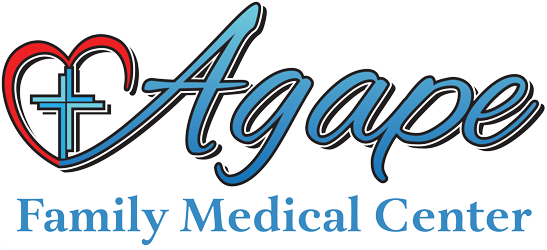Constipation
Constipation
Constipation ranks among the most common digestive issues, affecting over 15 percent of the population each year. It is characterized by infrequent bowel movements, typically fewer than three times a week.
While constipation can be a temporary inconvenience, chronic constipation left untreated can lead to more severe conditions such as anal fissures, fecal impaction, and hemorrhoids. It is crucial to address chronic constipation to prevent potential complications and maintain bowel health.
Moreover, constipation can also indicate the presence of an underlying and more serious condition, necessitating evaluation by your doctor. At Agape Family Medical Center, our medical experts are equipped to assess and manage constipation effectively. We prioritize your digestive health and well-being, providing personalized care to alleviate symptoms and enhance your overall comfort and quality of life. If you experience constipation-related concerns, don’t hesitate to seek medical attention so that we can assist you in finding relief and promoting optimal digestive health.

Risk factors for constipation
Anyone can become constipated, but it is more common in lower income women who are over 65 years old. You are also more likely to suffer from constipation if you are pregnant, recently had a baby or recently had surgery.
Other causes that contribute to constipation include:
- Limited physical activity
- Dehydration
- Low fiber intake
- Medications with constipation side effects, such as antidepressants, calcium channel blockers, antacids and iron supplements
- Medical conditions like diabetes, Parkinson’s disease, stroke, celiac disease, colon polyps and nerve damage
Signs or symptoms that you have constipation include:
- Inability to have a bowel movement
- Hard, dry stools
- Straining to use the bathroom
- Needing to use a finger to remove stool from the rectum
- Abdominal pain or bloating
- Reduced appetite
- Causes of constipation
- Treatment for constipation
Constipation can manifest when digested food lingers in the colon for extended periods. In such cases, excessive water absorption by the colon from the stool can lead to its hardening and dryness, exacerbating the difficulty of passing it. The complexities of digestive processes contribute to this condition, requiring attention and care to restore regular bowel movements. At Agape Family Medical Center, we comprehend the challenges that constipation presents, and our team of medical professionals is dedicated to providing diverse and effective treatments. With personalized care, we aim to alleviate your discomfort and enhance your digestive well-being, allowing you to regain comfort and normalcy in your daily life.
In most instances, constipation is a non-serious condition that can be effectively reversed with minor diet or lifestyle adjustments. Simple changes like increasing water and fiber intake in your diet, regular exercise, and timely response to the urge to use the bathroom can alleviate constipation.
If diet and lifestyle changes prove insufficient in relieving your symptoms, your doctor may recommend the use of laxatives to soften the stool, contract the intestines, lubricate the colon, or facilitate easier bowel movements.
In more persistent cases where dietary modifications, lifestyle changes, or laxatives do not yield the desired results, your doctor may prescribe specific medications like Amitiza, Linzess, Cytotec, or Col-Probenecid. These prescription medications can offer additional relief from constipation.
In rare instances where all other treatments have been ineffective, surgical intervention involving the removal of a portion of the colon may be considered as a potential solution to address chronic constipation.
Why It’s Important to See
Your Family Medicine Doctor?
Diagnosis of constipation
Your primary care doctor can diagnose constipation during a physical exam. The physician may perform a digital rectal exam or order diagnostic tests .
Blood test, Sigmoidoscopy
exams the lower part of the colon.
Colonoscopy
used to examine the colon.
Anorectal manometry
Measures how well the muscles in the anus work to remove bowel movements
Balloon expulsion test
Determines how quickly you can push a balloon filled with water out of the rectum.
Colonic transit study
A device is swallowed that is used to look for functional problems in the colon.



